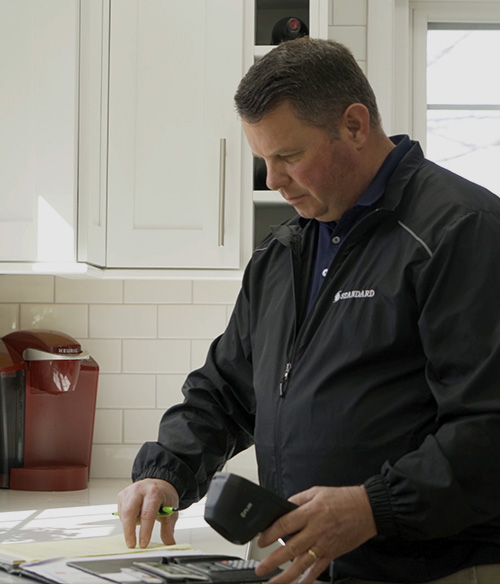Consider Replacing Your Gas Furnace with a Heat Pump

The potential harm gas stoves could be doing to human health has featured prominently in news headlines in the past few months. Chatter about banning the production of gas stoves could soon become a reality, but the concern surrounding natural gas doesn’t stop with kitchen appliances.
In January 2023, New York Governor, Kathy Hochul announced her support for a ban on fossil fuel-based heating equipment starting in 2030. Gas is the fuel source for approximately 55% of homes across the country.
Data in a recent Stanford study revealed that natural gas emits both methane and carbon dioxide — two greenhouse gases with a negative impact on the climate. Additionally, natural gas produces nitrogen dioxide (NO2) as a byproduct. NO2 exposure may increase the risk of respiratory problems, including asthma, inflammation, and reduced lung function in children.
As a positive alternative, Standard offers expert heat pump installation and advice based on nearly a century of serving the Mohawk Valley and Capital Region. Our expertise positions us to help you better understand everything that is involved in converting from gas to electric heat before you make the switch.
Why Replace a Gas Furnace with a Heat Pump?
Safety is among the chief benefits of converting from gas to electric heat. Gas furnaces could pose a serious danger from exhaust or gas leaks, combustion issues, carbon monoxide poisoning, and fire hazards.
Because heat pumps don’t generate heat by burning fuel, it is typically the safer options. Additionally, they don’t impact indoor air quality, allowing everyone to breathe easier — and have peace of mind, while inside. Other reasons to switch include:
Increased Energy Efficiency
In the most ideal conditions, heat pumps consume 300% less energy than they transfer. The system can reduce energy consumption in a home or business by 30% to 60%. That considerable energy savings translates into substantial savings on heating and cooling costs over time.
Smaller Footprint
The size of the unit needed depends on the home’s square footage. In general, heat pumps are far more compact than furnaces. Additionally, heat pumps don’t need additional clearance space indoors like furnaces do.
Heating and Cooling in One System
Gas furnaces operate separately from air conditioning units. Heat pumps heat and cool using one electric-based system, saving on installation costs, time, and maintenance.
Reduced Noise During Operation
Furnaces can be a little noisy, but heat pumps operate far more quietly, making them appropriate for installation near decks and other outdoor living areas. They offer quiet, even heating and cooling along with dehumidification and air filtration — all in one unit.
How Heat Pumps Work
Heat pumps work very differently than furnaces. While furnaces rely on burning a fuel source to heat a heat exchanger, heat pumps don’t require any fuel to work. Instead, the equipment draws heat in from the outside and constantly circulates it indoors without the air becoming dry. In summer, the heat pump transfers warm air from indoors to the outside for effective, efficient cooling.
These all-in-one systems can replace other HVAC components and offer improved energy efficiency. Additionally, heat pumps are eligible for state and federal aid.
To help make converting from gas furnaces to heat pumps affordable, New York offers a statewide program for residents. The Clean Heat Program offers rebates, financing, and incentives of up to 70%.
Cost to Replace a Gas Furnace with a Heat Pump
Many factors impact the ultimate cost of installing heat pumps, including the size and capacity of the unit, type, efficiency, and duct installation. The national average for heat pump installation is $5,500, with a range of $4,000 to $7,500.
Thankfully, the New York State Clean Heat Program and additional grants and rebates for New York residents make heat pump installation possible. In fact, up to 100% of the costs could be covered.
Additionally, increased efficiency can help produce long-term energy savings. Standard can also help ensure all the necessary ductwork gets addressed to ensure no energy is lost to air leakage. For homes without ductwork, mini-split systems offer an alternative with flexibility, efficiency, and easy installation.
Contact Standard to See If a Heat Pump Is Right for Your Home or Business
Natural gas has been used for heating homes for many years, but recent calls to stop using it bring up serious concerns. Safety issues, environmental hazards, and potential health risks can be avoided by replacing a gas furnace with a heat pump.
Standard’s friendly team is always happy to help our clients determine the best options for their properties. We will work with you to find a system that is optimal for your needs and your budget. We also offer professional expert installation, maintenance, repairs, and more.
Schedule a free consultation online today or give us a call at 1-800-738-1424.



